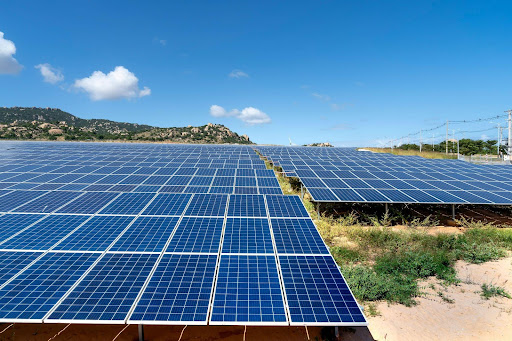Solar land lease is an innovative approach to utilizing renewable energy solutions on private properties. This article explores the advantages of solar land lease, how it works, and ways to maximize financial and environmental benefits from this arrangement.
By choosing the right solar energy company, property owners can tap into the potential of their land and contribute to a sustainable future. This objective and informative piece aims to provide technical insights into the concept of solar land lease.
Table of Contents
The Advantages of Solar Land Lease
The advantages of the solar land lease include a guaranteed source of income for property owners, reduced reliance on traditional energy sources, and the opportunity to contribute to sustainable development.
Solar land lease agreements provide property owners with a steady stream of income through long-term contracts with renewable energy companies. This guarantees financial stability and profitability for landowners, as they receive regular payments for allowing the installation and operation of solar panels on their property.
Furthermore, by leasing their land for solar energy generation, property owners can help reduce dependence on fossil fuels and decrease greenhouse gas emissions. Solar power is a clean and renewable energy source that does not produce harmful pollutants or contribute to climate change. By participating in solar land lease programs, property owners actively contribute to sustainable development goals by promoting the use of clean energy.
In conclusion, solar land leases offer significant advantages including guaranteed income and reduced reliance on traditional energy sources. These leases provide an opportunity for property owners to play a vital role in sustainable development while reaping financial benefits from renewable energy projects.
How Solar Land Lease Works
To understand the mechanics of a solar land lease, one must grasp the intricacies of how this arrangement operates.
The solar land lease process involves leasing a portion of land to a solar energy company for the purpose of installing and operating a solar panel system. This arrangement typically lasts for several decades, allowing the lessee ample time to recoup their investment and generate electricity.
Legal considerations play a crucial role in ensuring that both parties are protected throughout the duration of the lease. These considerations include drafting comprehensive contracts that outline responsibilities, terms, and financial arrangements. Additionally, permits and licenses may be required to comply with local regulations and ensure environmental sustainability.
Understanding these legal aspects is essential for both landowners and solar companies to navigate successfully within the framework of a solar land lease agreement.
Maximizing Financial Benefits from Solar Land Lease
Maximizing financial benefits from a solar land lease involves strategically optimizing revenue streams and cost-saving opportunities.
Monetizing unused land by leasing it for solar energy generation can provide a long-term investment opportunity with substantial financial returns. By entering into a solar land lease agreement, property owners can generate income through rental payments from the solar project developer or operator.
Additionally, property owners may benefit from electricity sales or net metering arrangements, where excess energy generated by the solar installation is fed back into the grid and credited to their account.
Moreover, cost-saving opportunities can arise from reduced utility bills due to on-site renewable energy generation.
Property owners should carefully negotiate lease terms and consider factors such as lease duration, rental rates, escalation clauses, and potential future development options to maximize their financial gains from a solar land lease arrangement.
Environmental Benefits of Solar Land Lease
One of the key advantages of engaging in a solar land lease is the potential for significant positive environmental impacts.
By harnessing renewable energy from solar panels, landowners can contribute to reducing their carbon footprint and promoting sustainability.
Solar land leases allow for the generation of clean electricity without relying on fossil fuels, thereby reducing greenhouse gas emissions and air pollution.
This shift towards renewable energy sources helps combat climate change and promotes a more sustainable future.
Additionally, solar land leases often require minimal land disturbance as compared to other forms of energy production, minimizing the impact on ecosystems and biodiversity.
Overall, engaging in a solar land lease offers an opportunity to make a substantial environmental difference by reducing carbon emissions and supporting sustainable practices.
Choosing the Right Solar Energy Company
Selecting the appropriate solar energy company is essential in ensuring a successful and efficient transition to sustainable electricity generation. When evaluating solar panel technology, it is important to consider factors such as efficiency, durability, and reliability.
Companies that offer state-of-the-art solar panels with high conversion rates and long lifespans are more likely to provide optimal performance over time. Additionally, understanding solar energy incentives can help determine which companies offer the most cost-effective options. Incentives such as federal tax credits or local rebates can significantly reduce the upfront costs of installing solar panels.
Therefore, it is crucial to select a solar energy company that not only provides cutting-edge technology but also offers comprehensive knowledge and guidance regarding available incentives. By carefully evaluating these aspects, individuals can make an informed decision when choosing a solar energy company for their land lease project.
















